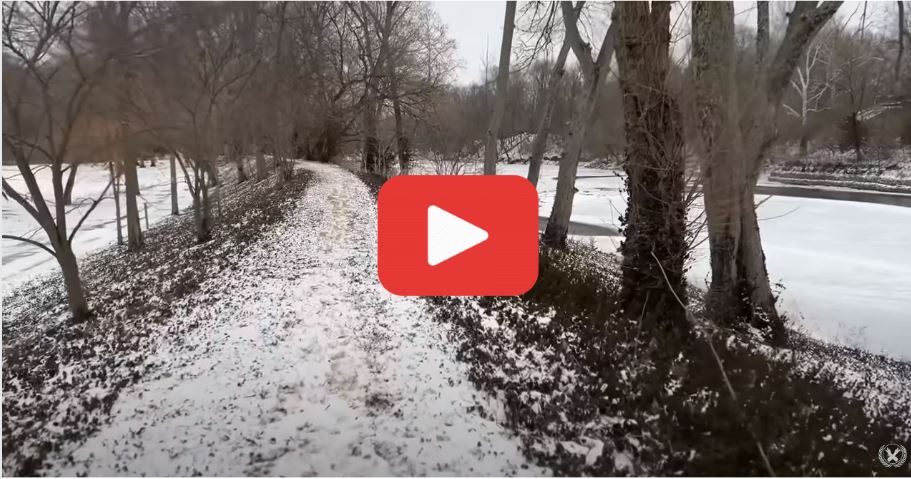Introducing Food for Thought!
We're always looking for ways to show our gratitude to the people that bring life to St. Peter's. In particular, we want to develop more support and resources for our wonderful volunteers. Our goal is to nourish the community of St. Peter's as we consciously and wholeheartedly dedicate our energy to the people we serve and to the people we serve with. St. Peter's Kitchen follows the model for Christian community, meaning we value solidarity, community, collaboration, and empowerment. To continue building our community, we now offer this new tool for our volunteers to connect and share with one another.
From this desire came the idea for Food for Thought, a newsletter designed to encourage reflection and get us thinking together about what we do and why. We imagine that Food for Thought will come out approximately once a month and feature some poem, passage, volunteer reflection, or video for meditation. Maybe occasionally some specific updates for volunteers, some shout-outs, who knows!
We hope that you enjoy this first iteration of Food for Thought, and there is an opportunity to share your ideas, responses, and submissions at the bottom of the newsletter. Use this material in any way that best suits you; watch the video or read the transcript, pick your favorite questions to think about, start up a conversation with friends, family, or fellow volunteers, whatever would be most rewarding!
|
"Auld Lang Syne," and Being Here
|
For our first Food for Thought, it only felt right to share John Green's essay about the song "Auld Lang Syne." John Green is most well-known as a young adult fiction writer, especially his 2012 novel The Fault in Our Stars. John has been making YouTube videos with his brother, Hank, on their joint YouTube account for almost twenty years, where John as used his platform to educate about many topics, including mental health awareness and public health crises like tuberculosis.
This essay was first released as the YouTube video included above, and it has since been released as a podcast episode and later published alongside other of John's essays in his book The Anthropocene Reviewed: Essays on a Human-Centered Planet. In this essay, John discusses the origin and meaning of the classic New Year's song, meanings it has taken on throughout its lifetime, and what he has learned from its words, variations on the words, and the people he has sung them with.
|
"I think 'Auld Lang Syne' is popular… because it’s the rare song that is genuinely wistful – it acknowledges human longing without romanticizing it, and it captures how each new year is a product of all the old ones."
|
- What are the little gestures of kindness that have changed your life, like the hired complimenter that liked John's shoes?
- Who has "loved you into your now"?
- Where do you feel most here, and with whom do you feel most part of a we?
|
"And in the British trenches [of World War I], soldiers began to sing the tune of 'Auld Lang Syne' with different words: We’re here because we’re here because we’re here because we’re here."
|
"I don’t think such hope is foolish or idealistic or misguided. I believe that hope is, for lack of a better word, true."
|
- How do you end a year and ring in the next?
- What role does hope play in your life? Is hope easy or difficult to come by?
- What does "don't do something, stand there?" mean to you?
|
More than being seasonally appropriate, the spirit of Amy Krouse Rosenthal's interpretation of the version of "Auld Lang Syne" born from the British trenches is already a part of the atmosphere at St. Peter's. To apply John's analysis of the words to our experience, we are here — a group of people dedicating our time and energy to service, teamwork, and each other. We are here — our ministry requires action and enacting what we believe, and we are here — at St. Peter's, brought together by so many different paths and decisions.
Central to our community, action, and presence here is our because: we are dedicated to our neighbors, to providing nourishment and kindness, and to hope that there can be a world without hunger, instability, and poverty. Hope is as necessary to our operation as our store room, fridges and freezers, and ovens. Even more, hope requires several tangible things to be most real and most impactful: people in which to take root (we), actions to give it life (are), and a place to call home (here).
Amy Krouse Rosenthal's song of hope is never-ending and explained by itself, and we sing it every day as we work together in service of others.
written by Julia Cilano
|
"We live in hope – that life will get better, and more importantly that it will go on, that love will survive even though we will not."
|
We want Food for Thought to be a dynamic and useful resource for volunteers, so we'd love your input! If you have any ideas on how this newsletter could serve you or if you want to help us develop this idea, if you would like to submit a volunteer reflection, or if you would be interested in having in-person meetings to reflect together, let us know!
Thank you for being part of our community, our action, and our place! Happy New Year!
|
|

